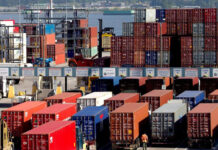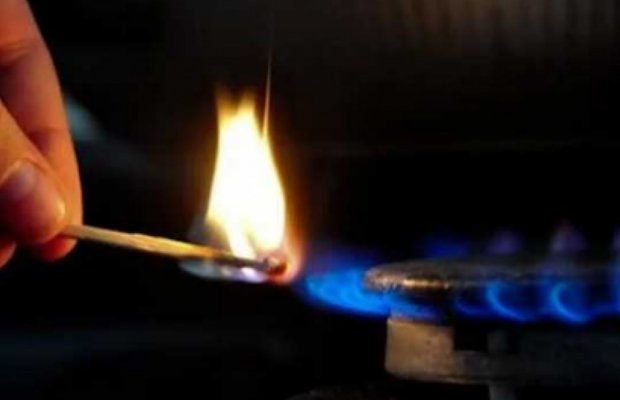According to Musadik Malik, Pakistan’s State Minister for Petroleum, the country will purchase 20,000 tons of gas from Azerbaijan over the next two months to meet domestic demand.
Although this might seem like a huge development for the energy sector, it isn’t. A normal sized LNG cargo that Pakistan receives contains about 60,000 tons of gas on average, and we import 10 cargoes a month that amounts to a total of 600,000 tons. Comparing that to the potential imports in the coming months from Azerbaijan it’s a drop in the bucket.
Despite the fact that these imports from Azerbaijan will not have a significant impact on the looming gas crisis, it might be enough to keep a few stoves or a few industries up and running for a while a longer. Additional cargoes and gas conservation is the need of the hour to prevent a looming gas crisis.
Apart from negotiations with Azerbaijan, according to Musadik Malik the government is working on the TAPI gas pipeline project as well. Pakistan would import 1300 billion cubic feet (bcf) of gas each year to address the country’s gas shortfall after the completion of this project.
According to him, “Our gas resources are depleting annually, adding to the pressure to import as much gas as possible to meet the demand”. It’s no secret that domestic gas reserves have been declining at a very rapid rate due to misallocation of gas and inefficiencies within the transmission and distribution networks.
However, building the necessary infrastructure for TAPI to facilitate these imports would take years and Pakistan might not have that long to wait. For this reason the country has also approached oil and gas rich Azerbaijan for potential cargoes of gas, it can be considered as a stop gap measure but a necessary one nonetheless.
Why Azerbaijan?
Azerbaijan has historically been an oil and gas rich country and is a major supplier of the European market. Due to the recent conflict between Russia and Ukraine, its role as a major energy exporter has increased significantly.
Ursula von der Leyen, President of the European Commission, also emphasised the need for increased cooperation between the European Union and Azerbaijan during a visit to Baku earlier this year. The parties decided to increase the amount of gas exported from Azerbaijan to Europe from 8 billion cubic metres (bcm) last year to roughly 20 bcm by 2027.
Ilham Aliyev, the president of Azerbaijan, also recently stated that his nation’s gas exports to Europe are expected to increase to “at least” 11.6 bcm next year from an estimated 11.3 bcm this year, according to a report from the Interfax news agency. Azerbaijan provided 8.2 bcm of gas to Europe last year.
Azerbaijan is a nation that sits on the border between Eastern Europe and Western Asia. It is a part of the South Caucasus and is bordered by Iran to the south, the Caspian Sea to the east, Georgia to the northwest, Armenia to the northwest, and the Republic of Dagestan to the north.
Natural gas and oil resources are plentiful in Azerbaijan. According to the June 2018 BP Statistical Review of World Energy, at the end of 2017, its oil reserves, which totaled 7 billion barrels, represented 0.4% of the world’s reserves. Natural gas reserves in Azerbaijan are believed to be 1.3 trillion cubic metres, and the Shah Deniz gas field, with more than 1,000 bcm, is one of the biggest in the world.
Traditionally gas from Azerbaijan is pumped through pipelines from its point of origin to the point of consumption, primarily in Turkey and Europe. This greatly reduces the cost of the gas and at the same time ensures consistent gas flows. Whereas there is no pipeline network that connects Pakistan to Azerbaijan therefore transporting gas through ships is the only option.
The interesting thing to note however is the fact that Azerbaijan is practically landlocked with no ports connected to the open seas. For this reason gas would have to be pumped from Azerbaijan to Turkish ports either on the Black sea or the Mediterranean sea. This might add onto the costs of gas which might just put it out of the reach of Pakistan given the current economic situation.
Furthermore another key aspect to be considered is that, in the scenario gas is transported via ship it would have to pass through the Suez canal. This would further compound the costs, as there are charges associated for ships passing through the canal. Also it would limit the size of the cargoes that can be shipped due to the narrowness of the canal; there is a cap on the tonnage of ships that can pass through it.
Considering the good relations between Pakistan and Azerbaijan, growth in trade would be beneficial to both countries. Also the fact that Pakistan is going through one of its worst economic cycles, alternate forms of payments can also be explored between the two countries, for instance fighter jets in exchange for oil and gas.
Turkmenistan- Afghanistan-Pakistan-India Gas Pipeline
Musadik Malik also said earlier this year that the TAPI gas pipeline project is on schedule and that, after reaching financial close, it can be finished in three to four years. Additionally, the minister announced the extension of the TAPI gas pipeline to Gwadar.
The TAPI Pipeline will run roughly 1,600 km from the Turkmenistan-Afghanistan border to the Pakistan-India border. During the 30-year period of commercial operation, the pipeline will transport 33 billion cubic metres (bcm) of natural gas annually from Turkmenistan to the corresponding consumers in Afghanistan (5%), Pakistan (47.5%), and India (47.5%).
The project can be a game changer for all the nations involved, especially Pakistan since we heavily rely on gas to fulfil the country’s energy requirements. However the project has been stalled for several years due to disagreements between Pakistan and India in particular.
If a solution is found and appropriate funding can be sourced for this mega project it has the potential to turn around the economies of Pakistan and Afghanistan in particular.
Just another political move ?
Although the development is not as big as the potential deal with Russia, nonetheless it can still be viewed as a positive development for the country. Procurement of additional oil and gas would only help to ease the overall gas shortage.
However, as things stand with buckling forex reserves it must be noted that affordable rates are essential for the deal to work out between the two countries.

























